

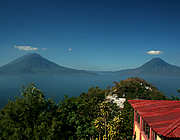
The most stunning lake bordered by three enormous volcanoes and a wonderful morning at Sololá market to see an authentic slice of colourful local life.
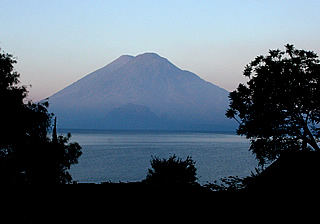
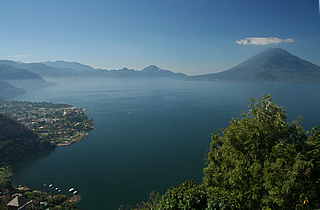
Though we took a hundred photographs and more of the lake during our stay, the best light was on the day we left. It was amazingly clear and we were up very early taking photographs from our room and down by the shore. It's a gorgeous place and extremely peaceful.
Lake Atitlan sits in a caldera created by a mighty volcanic explosion. Three magnificent volcanoes dominate the skyline from the Hotel Atitlan. Directly south Atitlán at 3535m sits almost directly behind Tolimán, 3158m. Volcán San Pedro, 3020m, lies to the south west. The view over the lake is truly magnificent.
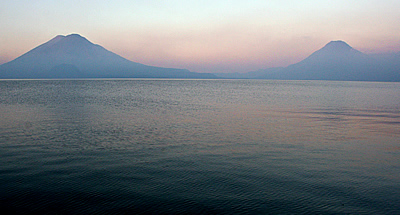
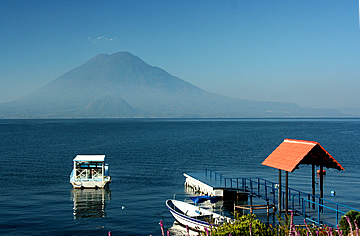
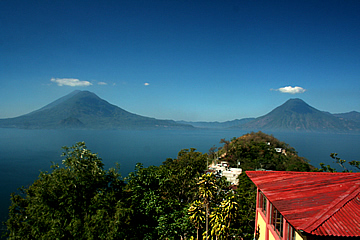
From a viewpoint above the town of Panajachel the lake looks spectacular. When we drove up and out over the mountains the view was absolutely stunning.
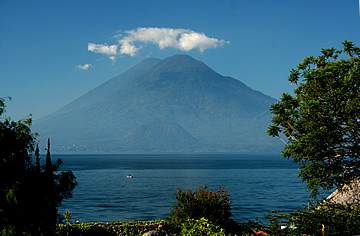

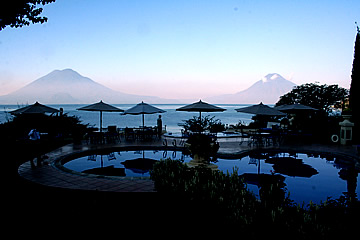
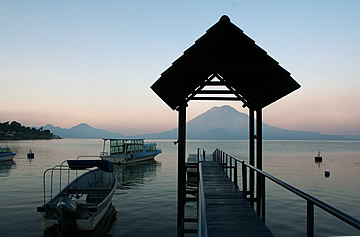
We stayed at the Hotel Atitlan, right on the lakeshore, and our room had a magnificent view of the lake and its wonderful volcanoes. Mario had been talking to the owner of the hotel whom he knew well and when he discovered we were staying for a few days he upgraded us from our original lakeside room to this one with much better views - we were very appreciative!
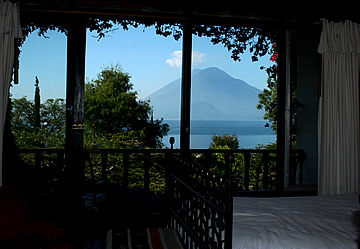



The hotel grounds are extensive and very well looked after,with a huge variety of plants and birdlife.
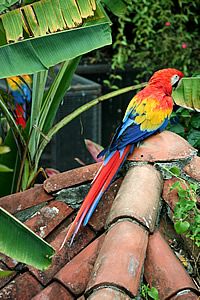
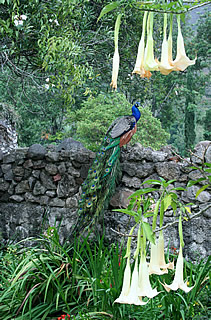
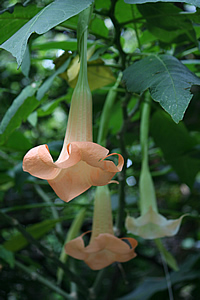
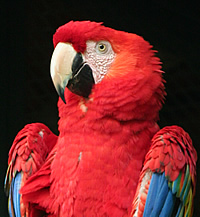
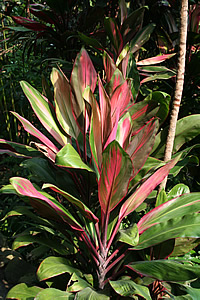
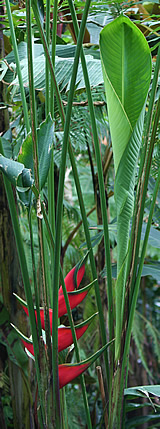
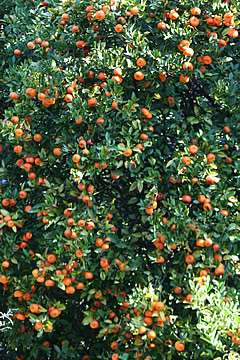
Behind the hotel are lots of lush tropical plants and macaws. One very aggressive macaw climbed off its perch and chased us - it looked quite evil! They are also quite noisy - every so often during the night, when they are put into a large cage in the gardens, one of them gives a startled screech as if it's been pinched!
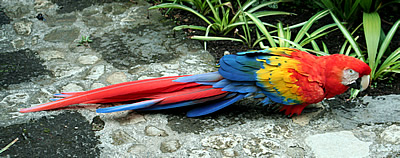
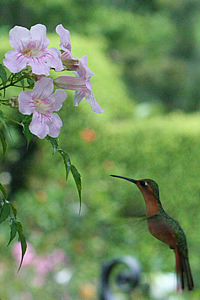


We also saw hummingbirds in the gardens - much nicer than macaws!
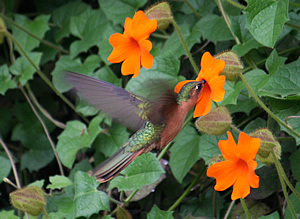

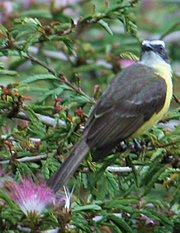
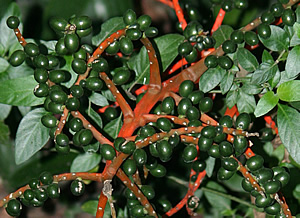
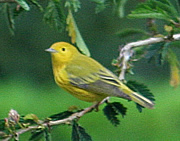
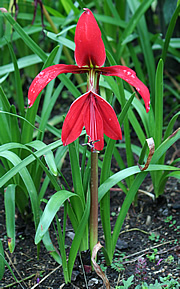
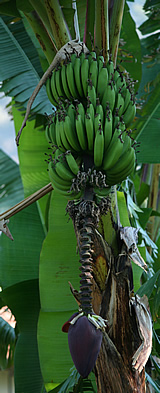
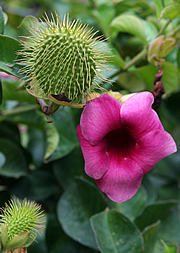
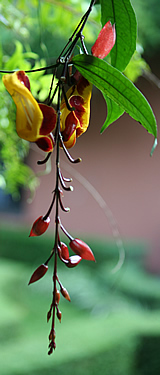
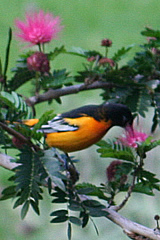
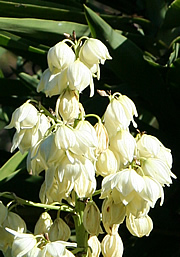
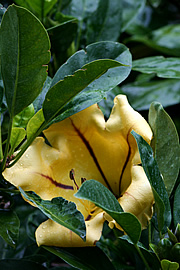
In front of the hotel on the lake side the gardens are manicured and more formal with low hedges, tall trees and green lawns, fountains and a stream.
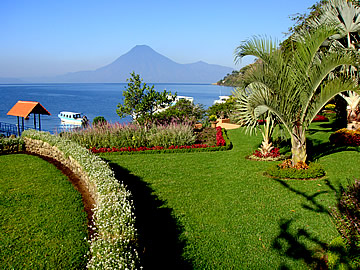
There were geese at a small pond and numerous wild birds - especially later in the day or early morning.
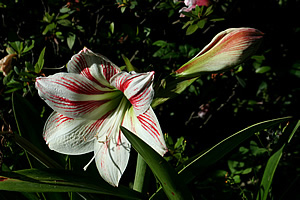
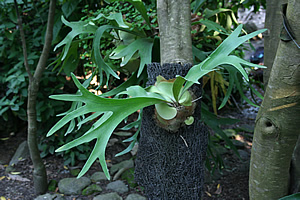
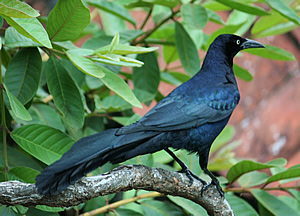
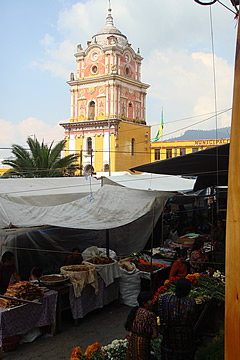
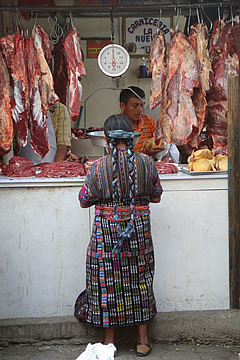
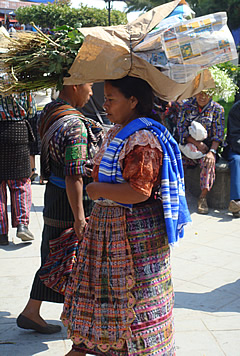
Mario had shuffled our itinerary a bit so that we could visit the Friday market at Sololá, so on our first full day here we set off after an early breakfast. Mario dropped us in the centre of town, right at the market, arranging to pick us up later.
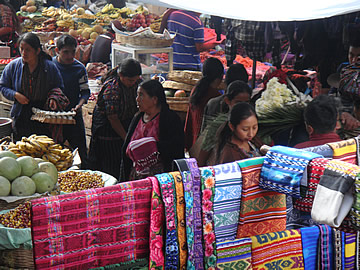
Sololá is the capital of the region and villagers come in from all around the town to the market. It was full of local people and we only saw one or two other tourists.
Thank goodness this is not a place which can accommodate large numbers of tourists - it would be really impossible considering how crowded the market is with local people and would really spoil the atmosphere.

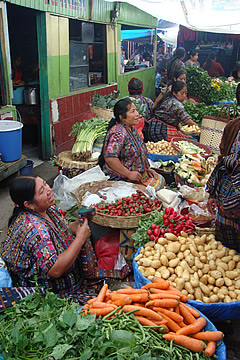
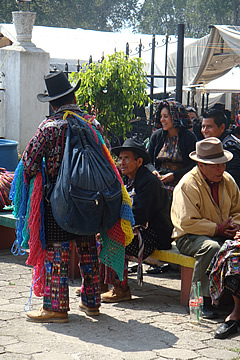
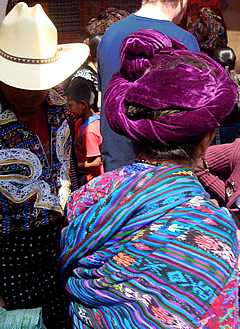
Most of the women and lots of the men were wearing traditional dress which is still very common.
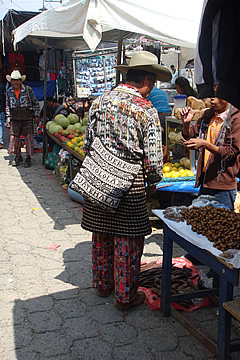
The women wear colourfully woven tops called huipils and long skirts, with their hair braided and maybe a velvet cloth wound around the head, a turban or strips woven into the braids. A baby might be carried on the back in a cloth sling.
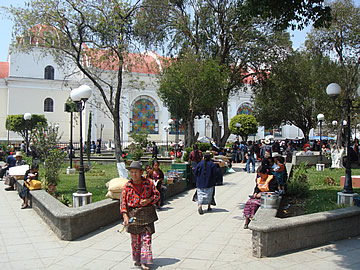
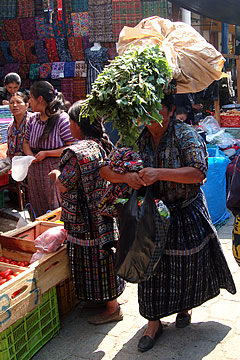
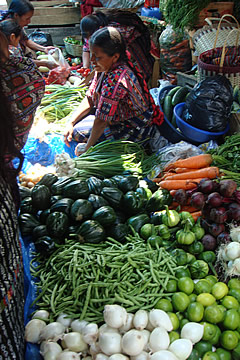
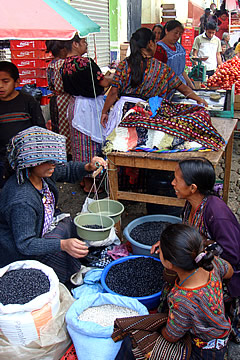
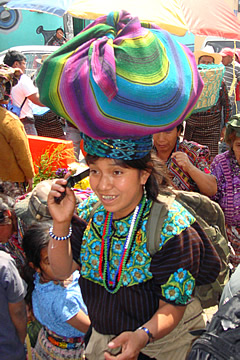
The men wear shirts and trousers of similar colourful material and a kind of kilt fashioned from a large piece of thick cloth wrapped around the hips. They also favour large stetsons - white or black.
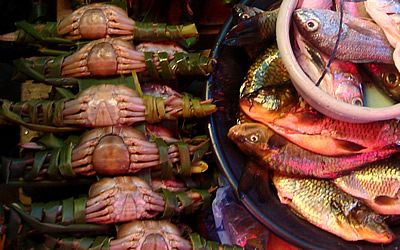
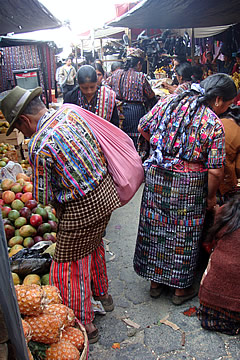
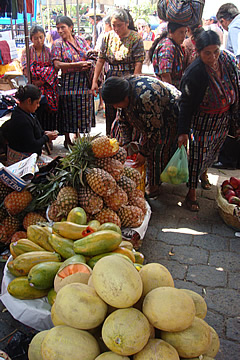
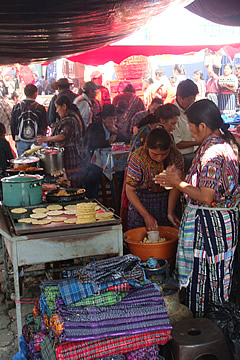
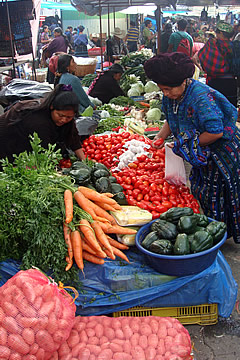
In some parts of the market it was a real crush but the people were really nice and no-one seemed to mind the bumps and collisions as they wove through the crowded passages. The technique seemed to be to lead with the shoulder and keep going until you reach the trader you want then stop dead.
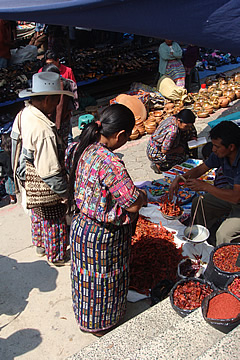
Everything you can imagine for daily life was on sale here: a huge variety of fruit and vegetables, chilis, fish, meat and household items such as pots and pans, ropes, tools - about the only thing which was significant by its absence was bread, or its equivalent, and I guess this is because every woman makes her own corn tortillas daily.
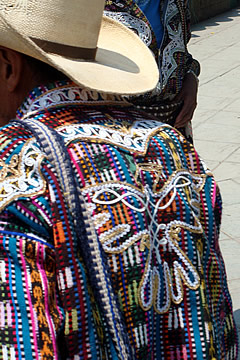
As usual drinks and hot food were also available from ad hoc cafés and stalls.
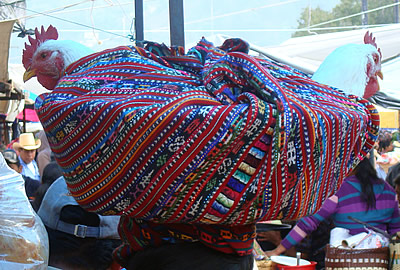
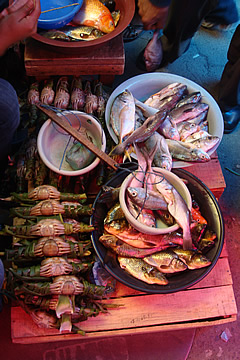
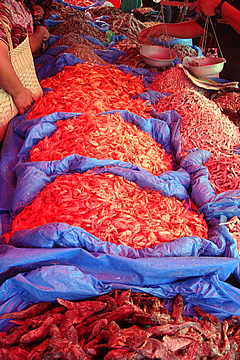
It was a lovely morning and we wandered for about two hours, thoroughly enjoying the spectacle, getting lost a couple of times but the large church was a good orientation point.
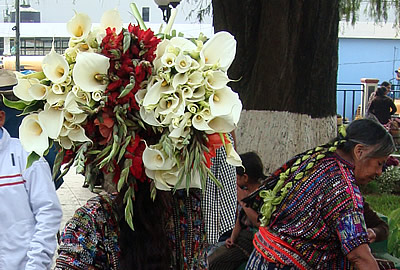
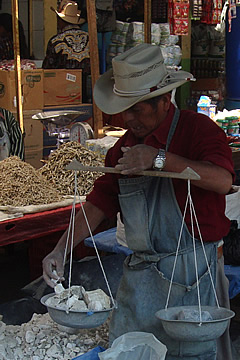
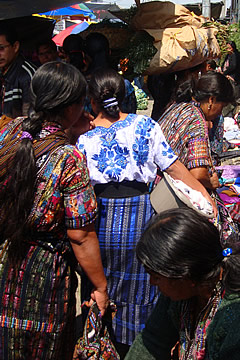
We saw one man selling lumps of limestone. This is added to the water to make an alkaline solution when boiling corn for tortillas. The process is called nixtamalisation and it improves the nutritional quality of the tortillas.1 We had seen it for sale in Ocotlan in Mexico to be used in exactly the same way..
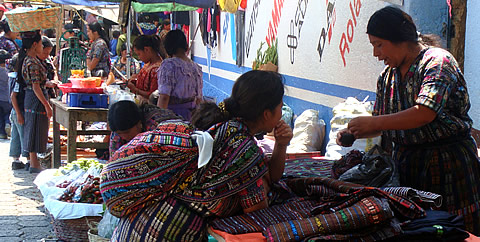
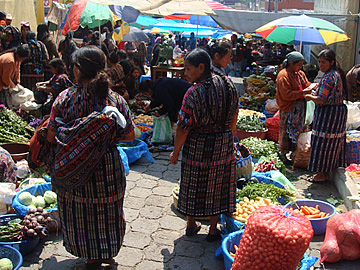
We throughly enjoyed our time here at the market, people didn't seem concerned about us, we were as discreet as possible with our photography.
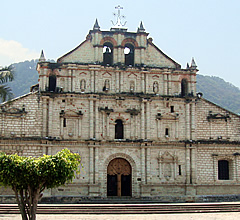
We returned to Panajachel for lunch.having a bit of a wander first, after Mario had driven us around the old town, showing us some of the more interesting bits including the simple colonial Franciscan church and a very good chocolate shop! The new town towards the lake has a lot of vendors clearly catering for tourists and we didn't find much to detain us, opting instead for a pre-lunch beer. We were plagued by wandering traders, one old woman was particularly persistent to the point where we quicky finished our beers and headed off.
We took Mario to lunch as a small thank you for being such a great guide and he recommended Atlantis which he knows well. Here I tried the traditional Pepian Pollo: chicken in a rich sauce flavoured with two types of chilli served with rice. It was very good.